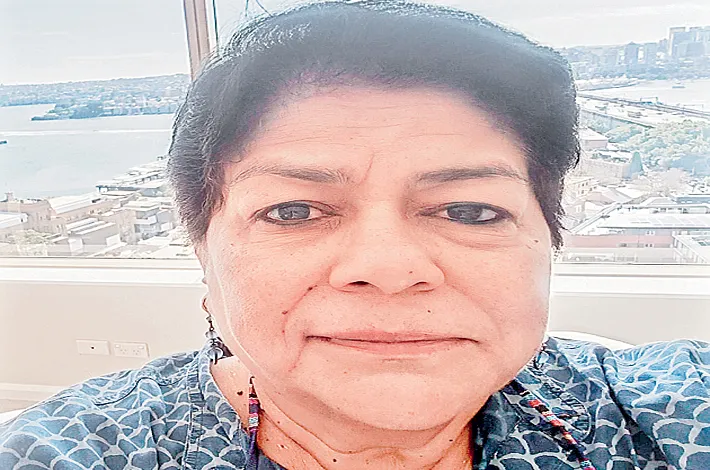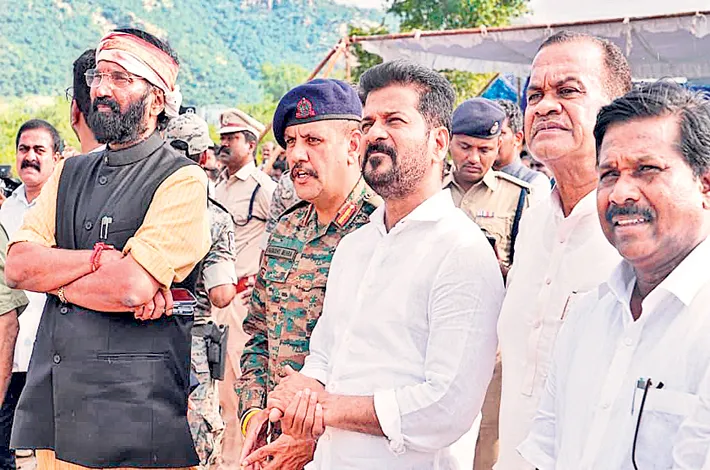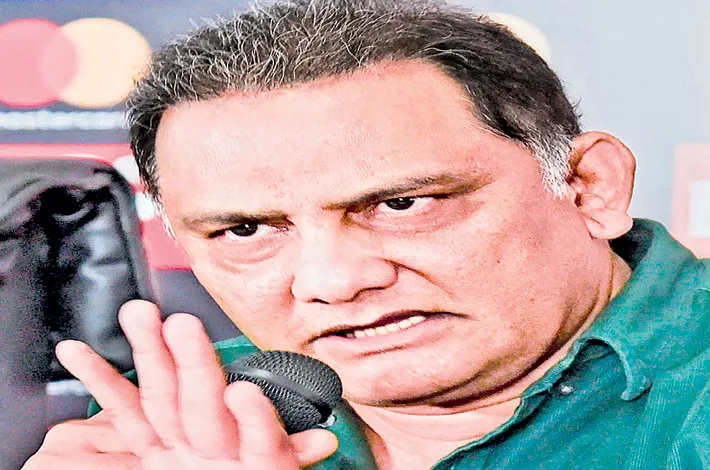The Machilipatnam Monsoon Mystery
27-06-2025 12:00:00 AM

The coastal town of Machilipatnam, nestled along the Krishna River delta in Andhra Pradesh, was cloaked in the relentless drizzle of the monsoon season. The air was thick with the scent of wet earth and fish, and the narrow streets glimmered under the dim glow of sodium lamps. Inspector K. Suryanarayana, a wiry man with sharp eyes and a reputation for unraveling the town’s secrets, sat in his modest office at the local police station. The ceiling fan creaked above him, doing little to dispel the humidity. A single file lay open on his desk—a missing person case that had the town buzzing with unease.
Lakshmi Devi, a 32-year-old schoolteacher, had vanished three days ago. Her husband, Venkatesh, a clerk at the local cooperative bank, reported her missing after she failed to return from her evening walk along the Bandar beachfront. The town, known for its kalamkari textiles and bustling port, was not accustomed to such mysteries. Rumors swirled—some whispered of an affair, others of a kidnapping tied to a recent spate of smuggling activities along the coast.
Suryanarayana sipped his filter coffee, the bitter tang grounding him as he reviewed the case. Lakshmi was last seen near the Manginapudi Beach, a quieter stretch where fishing boats bobbed in the gray waves. Witnesses mentioned a man in a dark raincoat lingering near the shore that evening, but no one could describe his face. The inspector’s instincts told him this wasn’t a simple runaway case. Machilipatnam’s underbelly—its smuggling rings and petty rivalries—often hid darker truths.
He grabbed his khaki raincoat and headed to the beach. The rain had softened to a mist, and the sea roared softly in the distance. At Manginapudi, he met Ravi, a local fisherman who had seen Lakshmi that evening. Ravi, his face weathered by years at sea, pointed to a cluster of rocks near the shore. “She was walking there, sir,” he said, his voice low. “Then that man in the raincoat appeared. I thought he was just another tourist, but he followed her too closely.”
Suryanarayana scanned the area. The rocks were slick with seaweed, and the tide was coming in. He noticed something glinting between the stones—a silver anklet, delicate and engraved with floral patterns. He bagged it carefully, his pulse quickening. Lakshmi’s husband had mentioned she always wore such an anklet, a gift from her late mother. This was no coincidence.
Back at the station, Suryanarayana questioned Venkatesh again. The man was nervous, his fingers twitching as he spoke. “She was happy, sir. No enemies, no troubles,” he insisted. But Suryanarayana noticed Venkatesh avoided eye contact when asked about their finances. A quick check with the bank revealed Venkatesh had recently taken a large loan, citing “business investments.” The inspector’s gut churned—money troubles often led to desperate acts.
His next stop was the local kalamkari market, a labyrinth of stalls selling vibrant hand-painted fabrics. Lakshmi had been a regular here, often buying supplies for her school’s art classes. Suryanarayana spoke to Meena, a vendor who knew Lakshmi well. Meena hesitated before whispering, “She was asking about a man named Prasad last week. Said he was pressuring her for something. I told her to stay away—he’s bad news.”
Prasad was a known figure in Machilipatnam’s shadier circles, a middleman for smugglers moving gold and electronics through the port. Suryanarayana tracked him to a rundown warehouse near the docks. The air inside was heavy with the smell of diesel and damp wood. Prasad, a stocky man with a scar across his cheek, smirked when confronted. “Lakshmi? Never heard of her,” he said, but his eyes darted to a crate in the corner.
Suryanarayana’s team searched the warehouse and found a hidden compartment in the crate—inside were packets of smuggled gold bars. Tucked among them was a torn piece of cloth, kalamkari fabric with the same floral pattern as Lakshmi’s anklet. The inspector’s mind raced. Had Lakshmi stumbled onto Prasad’s operation? Was she silenced to protect the smuggling ring?
He pressed Prasad, who cracked under the weight of evidence. “I didn’t kill her!” he blurted. “She saw me at the beach, moving a shipment. She recognized me from the market and started asking questions. I just… pushed her away. She fell, hit her head on the rocks. I panicked and hid her body in a boat.”
Suryanarayana’s heart sank. He led a team to the docks, where they found an abandoned fishing boat covered with a tarp. Beneath it lay Lakshmi, her face pale, a gash on her temple. The sight hit Suryanarayana like a punch—he had hoped to find her alive. The coroner later confirmed she died from the head injury, likely accidental but no less tragic.
Venkatesh confessed to knowing about Prasad’s smuggling. Desperate to clear his debts, he had borrowed money from Prasad, unaware Lakshmi would cross paths with the smuggler. His guilt was palpable, but it wouldn’t bring Lakshmi back.
As the monsoon rains continued, Suryanarayana stood by the beach, the anklet in his pocket a heavy reminder of the case. Machilipatnam’s waves carried away its secrets, but not this time. Justice would come for Lakshmi, even if the town’s wounds lingered like the endless rain.








